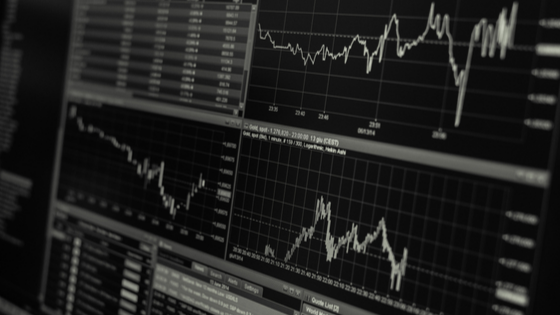It makes little sense for American investors to risk their money on shadowy companies, as this op-ed points out.
Enron stock was valued at $83.13 per share back in December 2000. Its market capitalization exceeded $60 billion. By November 2001, its per-share value had fallen to $1.
[Michael Stumo | October 13, 2019 | LifeZette]
Under CEO Jeffrey Skilling, Enron used accounting loopholes, special purpose entities, and poor financial practices to hide billions of dollars in debt — all to pump up its stock price.
The company pressured accounting firm Arthur Andersen to ignore such issues.
Its eventual bankruptcy filing in December 2001 was — at the time — the largest ever.
In 2002, the Sarbanes-Oxley Act was passed to prevent another Enron scandal. The law created a Public Company Accounting Oversight Board (PCAOB) that oversees accounting firms that provide audit services.
It also strengthened corporate financial disclosures and established standards for auditor independence.
Even with such measures, a new problem is emerging.
At least 156 Chinese companies — including 11 state-owned firms — are trading right now on America’s three largest stock exchanges.
Their market value, at $1.2 trillion, is 20 times that of Enron.
The PCAOB reports that many of these companies are opaque, with “obstacles” that prevent a clear inspection of their audits.
Audits are a critical part of U.S. financial regulation.
If a company raises $100 million from investors to build computers, for example, an independent audit will not only inspect its accounting books but also confirm that actual computers are being manufactured. This ensures that investor funds aren’t misappropriated for yachts, Ferraris, and Swiss bank accounts.
A finished audit, and a subsequent inspection by the PCAUB, help to ensure a reliable financial system.
Such diligence is important — but Beijing is blocking these inspections of Chinese companies being traded in U.S. markets. The Chinese government requires that financial records and auditor documentation remain in China — preventing U.S. regulators from viewing them.
And it invokes state security laws to shield financial documents on the grounds of state secrets and national security.
Why are these Chinese companies being allowed in U.S. securities markets in the first place?
The repercussions of fraudulently inflated finances would be significant for individual investors, pension funds, and the overall market.
To remedy the problem, Sens. Bob Menendez (D-N.J.), Marco Rubio (R-Fla.), Tom Cotton (R-Ark.) and Kirsten Gillibrand (D-N.Y.) have introduced the Equitable Act (Ensuring Quality Information and Transparency for Abroad-Based Listings on our Exchanges). The bipartisan bill would increase oversight of Chinese and other foreign companies listed on American exchanges — and would delist any firms not complying with U.S. financial regulations.
Despite warnings about such potential fraud, the Federal Retirement Thrift Investment Board recently announced plans to invest its pension fund in Chinese companies.
How is this possible?
Because that board has chosen to follow investment benchmarks set by Morgan Stanley Capital International (MSCI) that give high ratings to some of these companies. Sens. Rubio and Jeanne Shaheen (D-N.H.) wrote an op-ed at the end of September warning that the board should not funnel the retirement savings of federal employees to China’s communist party, particularly when Beijing uses such companies to carry out its “military, espionage, [and] human rights abuses.”
There’s a national security concern as well. As Sen. Rubio has reported, the tech company Hikvision has prospered by supplying video surveillance equipment for Beijing’s campaign of ethnic repression in western China.
Buying stock in Hikvision may be a good long-term investment — but it also enables the growth of an aggressive geopolitical rival.
The reality is that Chinese entrepreneurs are using America’s stock markets to scam investors out of billions of dollars.
And China is the only country in the world brazen enough to float fraudulent companies on world markets.
China’s economy is intentionally opaque, and Beijing uses these state-owned enterprises to advance its military, political, and economic goals. The Federal Retirement Thrift Investment Board’s decision could mean U.S. pension assets invested in Chinese companies engaged in precisely these practices.
Thankfully, the Trump administration has considered blocking all U.S. investments in China. Frank Gaffney, executive chairman of the Center for Security Policy, said of these sanctioned companies, “You can’t do business with these companies according to the United States government, but you can invest in them. … Wall Street does not seem to care that it’s a danger to our national security.”
It makes little sense for U.S. investors to risk their money on shadowy Chinese companies.
And it’s even more problematic for national security if America’s federal employees’ pension money is used to subsidize Chinese companies that harm America’s economic and security interests.
America’s financial markets should never be used to funnel money to companies that hide their financial information or threaten national security.
At best, confidence in the stock market is threatened.
At worst, it funds the rise of a strategic and military rival.
Michael Stumo is CEO of the Coalition for a Prosperous America (CPA), a nonprofit group working at the intersection of trade, jobs, tax and economic growth.












